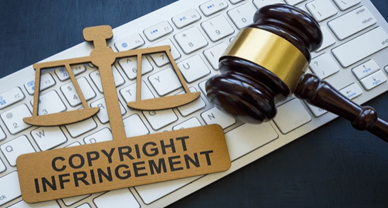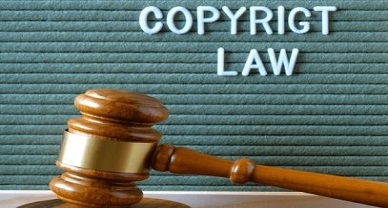Should Indian Courts Rely More on Criminal Remedies to Combat Copyright Infringement?
The rise of copyright infringement in India, especially in the digital era, has sparked debates about the effectiveness of enforcement under the Copyright Act, 1957. While the Act provides both civil and criminal remedies, relying primarily on civil litigation has proven insufficient to tackle widespread issues like piracy and illegal content distribution. Criminal remedies, with their potential for stricter penalties such as imprisonment and hefty fines, offer a stronger deterrent and can effectively disrupt organized piracy networks.
However, enforcing criminal provisions is not without its challenges. Procedural delays, limited resources, and the high burden of proof often hinder their implementation. Despite these hurdles, criminal remedies have the capacity to enhance copyright enforcement significantly. Strengthening their application and addressing systemic issues in the judicial process could provide creators with better protection and foster a more robust copyright system in India.
A balanced approach, integrating both civil and criminal measures, can ensure stronger safeguards for intellectual property rights while supporting the growth of India’s creative industries.
In the growing world of intellectual property, copyright plays a very pivotal role. It ensures creators can reap the rewards of their labour, whether they are authors, musicians, filmmakers, or software developers. However, in India, copyright enforcement often fails to rise to the challenge, leaving creators vulnerable to rampant infringement and significant economic losses. Hence, the question lies here that “Should Indian courts lean more on criminal remedies to address copyright violations?”
India’s copyright law springs from the first enactment of the Copyright Act post independence in the year 1957, which was so enacted to protect the rights of creators. The Act though undergone significant amendments over the years, has incorporated various new rules in response to digital disruptions and an international best practice regime. Yet, copyright infringement does continue to distressingly be common not only in India but globally. Violators operate with seeming impunity in everything from pirated film versions and copied software to reproduced books, illegal downloads of music, and more, by exploiting the gaps in enforcement. While the Act provides for both civil and criminal remedies, reliance on civil litigation—such as injunctions or damages—has been insufficient in protecting the rights of the authors or creators. Violators, emboldened by law enforcement and procedural delays, still can be seen continuing their illicit activities. Criminal remedies, with their sharper deterrent edge, might just hold the key to addressing this persistent issue.
A Legacy of Insufficient Deterrence
India’s copyright regime was established with a fabled ideal. The Copyright Act, 1957 provided creators with exclusive rights to reproduce, distribute and perform their work as well as moral rights in respect of the protection of their works from unauthorized reproduction or public use. However, the ease of duplicating and distributing content due to the advent use of digital technology has proved to be a challenge that the original framework of the Act was trying to avoid. Piracy, online or offline, is now big business.
In addition to fakes of this and that merchandise, these firms are all illicit streaming services relying on sheer volume as a basis to mock the remedy of law: even where injunctions do hold, it may be a near impossible feat for copyright owners to get anything at all for a judgment once made. And sometimes, no doubt, an award of damages isn’t anywhere nearly enough to dissuade another offense, although it does indeed deter people.This is where criminal remedies come in. The law can send a strong message to infringers by introducing stiffer penalties like imprisonment and high fines. Criminal proceedings, particularly those targeting organized piracy networks, can disrupt operations and act as a deterrent to others.
Criminal Provisions Under the Copyright Act
The Copyright Act, 1957[1] has effective criminal provisions dealing with serious cases of infringement. For instance, Section 63 prescribes imprisonment for six months to three years and a fine of ₹50,000 to ₹300,000 in the case of intent. Under Section 63A[2], it increases the minimum term of imprisonment to one year. Sections 65A[3] and 65B deal with digital infringements, which have now assumed more salience in the present age of streaming and e-books. They criminalize circumvention of technological protection measures and tampering with the information of rights management without permission. Such moves confirm the ever-evolving nature of copyright violation and the need for specific remedies. Notwithstanding these provisions, their application remains irregular. Procedural delays, lack of resources, and the higher evidentiary threshold in criminal cases make it unappealing for law enforcement to invoke these remedies vigorously. However, if applied appropriately, these tools can take down organized piracy rings and protect the rights of creators.
Judicial Insights: The Role of Case Law
The Indian courts have shed light on the application of criminal remedies in copyright cases. A judgment, “Abdul Sathar v. Nodal Officer[4]” also known as the “Anti-Piracy Cell” case, made it clear that offenses under Section 63 are cognizable and non-bailable. In putting such infringements into serious crimes, the judiciary underlined that there must be more strict enforcements. Similarly, in the landmark case, “Krishika Lulla v. Shyam Devkatta[5]“, popularly known as the “Desi Boys Case”, was one of the important cases that indicated the limitations of copyright protection. The Supreme Court held that the title of a film is not a copyrighted work. This judgment reflected the judiciary’s commitment to balanced enforcement so that criminal remedies are not misused to stifle legitimate creative expression. Similar are the dictums in the case of “Jitendra Prasad Singh v. State of Assam[6]“. The case has shown how anticipatory bail to an accused has been denied while giving credence to the penal provisions of Section 63. Not only does it enhance the criminal deterrent, but it also shows that the judiciary continues to assertively protect creators.
Why Criminal Remedies Matter
This is more than an argument for increased reliance on criminal remedies. Criminal prosecution serves several purposes, including the targeting of organized piracy, the protection of moral rights, and compliance with international obligations. India being a signatory to the TRIPS Agreement is under an obligation to enforce criminal penalties for willful copyright violations on a commercial scale. Failure to do so may undermine the country’s intellectual property ecosystem and deter investment in its creative industries.
This will also send a strong message to potential infringers. The law will reinforce the seriousness of copyright violations by imposing substantial penalties. Organized piracy networks, which operate with impunity in many regions, can be dismantled through coordinated criminal enforcement. Such actions not only protect creators but also foster a culture of respect for intellectual property.
Challenges and the Way Forward
Despite the promise of criminal remedies, they are beset with several challenges in India. These matters involving intricate details of copyright violation cannot be investigated by any police organization due to a lack of capabilities and resources. Besides that, the invariable delays within the procedural mechanisms of the judiciary also postpone action. Even for criminal cases, the burden of proof required is very high; it requires conclusive evidence regarding intention on a commercial scale. It could be addressed with multiple approaches: first, creating more awareness among creators and the general public on the law regarding copyright and enforcement; second, specialized training given to law enforcement and judicial officers so they can address issues of copyright efficiently; lastly, it could come with legislative reforms, which streamline procedures so as to provide timely justice.

Copyright infringement is not just an economic issue; it is a moral one too. When the rights of creators are violated, it dissolves with it labor, creativity, and economic interests. Civil remedies are in no way adequate to confront the well-organised piracy networks and general violations in India’s creative sectors. The gap thus created can only be bridged by judicious application of criminal remedies. The imposition of heavy penalties and breaking up piracy networks protects creators and reinforces the rule of law. In this context, Indian courts, increasingly alive to the value of criminal sanctions, play an important role.
Ultimately, a strong enforcement framework—based on criminal and civil remedies—can transform India’s copyright regime. By prioritizing creators’ rights and fostering a culture of intellectual property respect, India can ensure that its creative industries thrive in the years to come.
Author:– Isha Singh, in case of any queries please contact/write back to us at support@ipandlegalfilings.com or IP & Legal Filing.
References
- https://www.researchgate.net/publication/384940137_Criminal_Enforcement_of_Copyright_in_India
- UC Davis Law Review 589, 616, Available at SSRN: https://ssrn.com/abstract=3086912
- Delhi court dismisses anticipatory bail plea of law book publisher in copyright case, THE PRINT, New Delhi, June 7, 2022, available at https://theprint.in/india/delhi-court-dismisses-anticipatory-bail-plea-of law-book-publisher-in-copyright-case/986875/ (Last seen on January 31, 2023).
- FEDERATION OF INDIAN CHAMBERS OF COMMERCE & INDUSTRY (‘FICCI’), Proposed Decriminalization of Offences under Copyright Act, 1957, 7, available at https://ficci.in/SEDocument/20518/DecriminalisationofCopyrightActProvisions.pdf (Last seen on January 30, 2023).
…“Enhanced penalty on second and subsequent convictions.— Whoever having already been convicted of an offence under section 63 is again convicted of any such offence shall be punishable for the second and for every subsequent offence, with imprisonment for a term which shall not be less than one year but which may extend to three years and with fine which shall not be less than one lakh rupees but which may extend to two lakh rupees: Provided that where the infringement has not been made for gain in the course of trade or business the court may, for adequate and special reasons to be mentioned in the judgment, impose a sentence of imprisonment for a term of less than one year or a fine of less than one lakh rupees:..”
Author:– Isha Singh, in case of any queries please contact/write back to us at support@ipandlegalfilings.com or IP & Legal Filing.
[1] Copyright Act, 1957
[2] Copyright Act, 1957 § 63A.
[3] Copyright Act, 1957 § 65A
[4] AIR 2007 Ker 212
[5] (2016) 2 SCC 521
[6] (2003) 26 PTC 486 GAU


